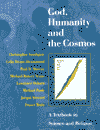Darwin’s Evolutionary Scheme
Darwin set out his main arguments in Chapters 2 and 3 of The Origin
of Species. He stressed a number of key aspects: the struggle for
existence, variation, natural selection, extinction and species divergence.
These ideas are woven into a very readable and perceptive text that gives an
account of his biological knowledge and his experience of the breeding
techniques of pigeon fanciers and farmers.
A few short quotations from the Origin are given below which give the core of the theory. They are
taken from Darwin’s first edition of 1859.
Owing to the struggle for life, any
variation, however slight and from whatever cause preceding, if it be to any
degree profitable to an individual of any species, in its infinitely complex
relations to other organic beings and to external nature, will tend to the
preservation of that individual, and will generally be inherited by its
offspring. (p115)
The preservation of favourable
variations and the rejection of injurious variations, I call Natural
Selection. Variations neither useful
nor injurious would not be affected by natural selection, and would be left a
fluctuating element... (p131)
It follows that as each selected
and favoured form increases in number, so will the less favoured forms decrease
and become rare. Rarity, as geology tells us, is the precursor to extinction.
(p153)
According to my view, varieties are
species in the process of formation, or, as I have called them, incipient
species (p155)
This results in a ‘branching-tree’ view of evolution, rather
than a step-ladder of progress, or a series of isolated ‘special creations.’ The key ingredients in the scheme, then, are:
-
Variations occurring spontaneously, not themselves directly produced by the environment
-
Competition for resources, so that only the best adapted survive to reproduce
-
Therefore, ‘selection,’ by the environment, of which variants will survive and increase in number.
Email
link | Feedback | Contributed by: Dr. Christopher Southgate and Dr. Michael Robert Negus
Source: God, Humanity and the Cosmos (T&T Clark, 1999)
|





